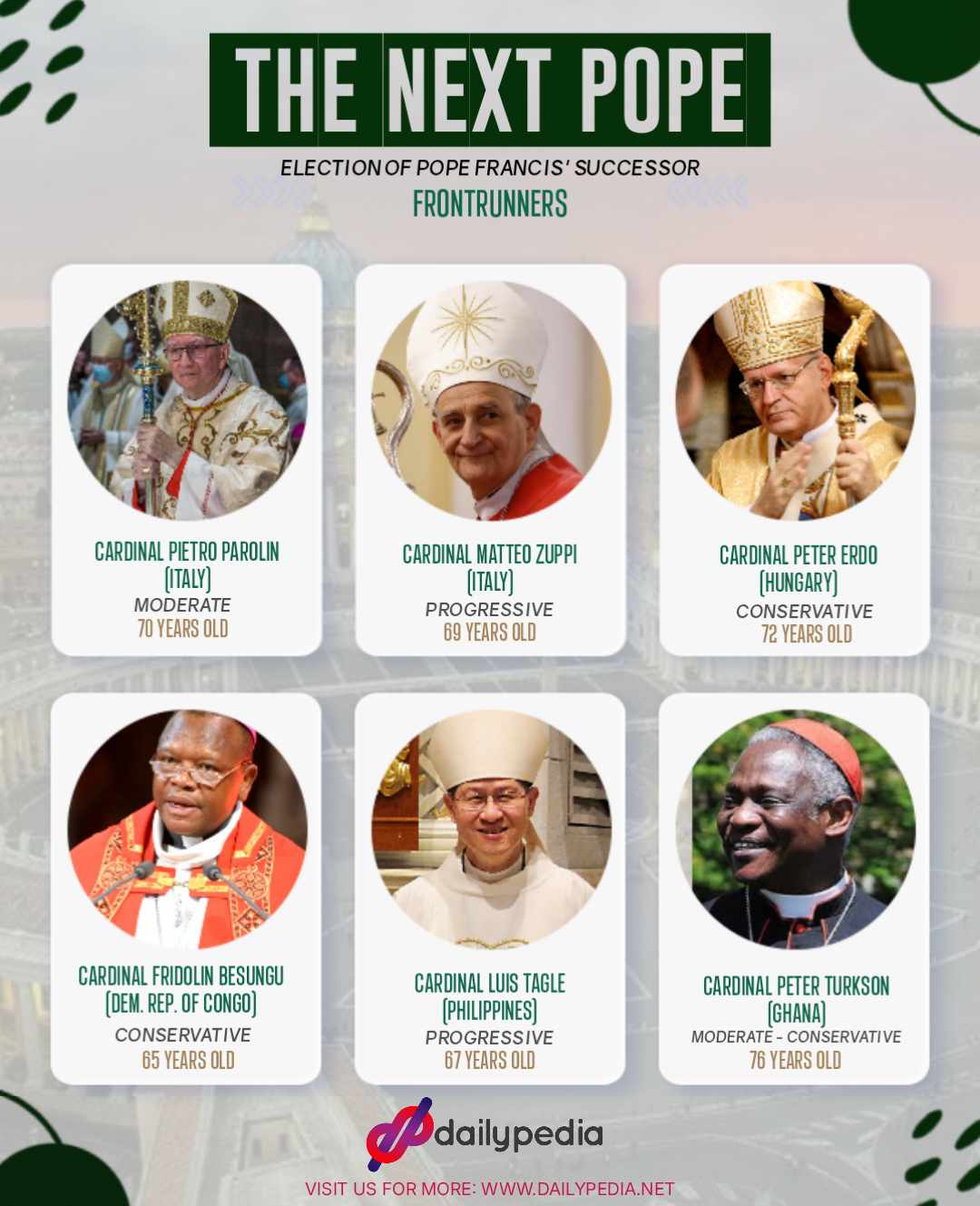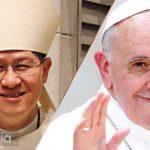
-
Cardinal Luis Antonio Tagle (Philippines, 67, Progressive)
Dubbed the “Asian Francis,” Tagle’s pastoral warmth and focus on the poor mirror Francis’ vision. As head of the Dicastery for Evangelization, he pushes for inclusivity, critiquing harsh stances on LGBTQ+ and divorced Catholics. His papacy would likely advance Francis’ reforms, emphasizing social justice and modern engagement. An Asian pope would be historic, galvanizing Asia’s growing Catholic population, but his youth might concern electors wary of a long reign. -
Cardinal Péter Erdő (Hungary, 72, Conservative)
A canon law expert and Budapest’s Archbishop, Erdő champions traditional doctrine, opposing same-sex blessings and aligning with Hungary’s conservative policies. His election would signal a return to orthodoxy, appealing to traditionalists but risking alienation of progressive faithful, especially in the West. His ties with African bishops could strengthen conservative support. -
Cardinal Fridolin Ambongo Besungu (Democratic Republic of Congo, 65, Conservative)
Kinshasa’s Archbishop, Ambongo is a prominent African voice, opposing same-sex blessings while advocating for human rights. As the first Black pope since the 5th century, he would highlight Africa’s surging Catholic population, shifting Vatican focus southward. His conservative theology could halt inclusive reforms, appealing to the Global South but clashing with Western progressives. -
Cardinal Peter Turkson (Ghana, 76, Moderate-Conservative)
A biblical scholar and former peace envoy, Turkson balances social justice with conservative theology, notably opposing condom use during Africa’s AIDS crisis. His election as an African pope would symbolize the Church’s growth in Africa, but his age and past controversies could limit his chances. His moderate stance might bridge divides. -
Cardinal Matteo Zuppi (Italy, 69, Progressive)
Bologna’s “street priest,” Zuppi focuses on migrants and peace, serving as Francis’ Ukraine envoy. His progressive support for LGBTQ+ outreach aligns with Francis’ vision. A Zuppi papacy would prioritize inclusivity, resonating with Western liberals but facing conservative pushback due to his limited Vatican experience. -
Cardinal Pietro Parolin (Italy, 70, Moderate)
The Vatican’s Secretary of State, Parolin is a diplomatic powerhouse and a pragmatic continuity candidate. His role in the China-Vatican deal draws criticism, but his global experience could unify a divided Church. His election would likely balance Francis’ diplomacy with tempered reforms.
A progressive like Tagle or Zuppi would deepen Francis’ inclusive legacy, potentially welcoming marginalized groups but risking conservative backlash. A conservative like Erdő or Ambongo would reinforce doctrine, aligning with the Global South’s ethos but alienating Western progressives. Parolin or Turkson could offer stability. Yet, Francis’ own unexpected election in 2013 underscores that conclaves can produce surprises. A lesser-known cardinal—perhaps from Latin America or Asia—could emerge, reshaping expectations. With 80% Francis appointees, a progressive tilt is possible, but conservative frontrunners and the conclave’s secrecy suggest anything can happen.

